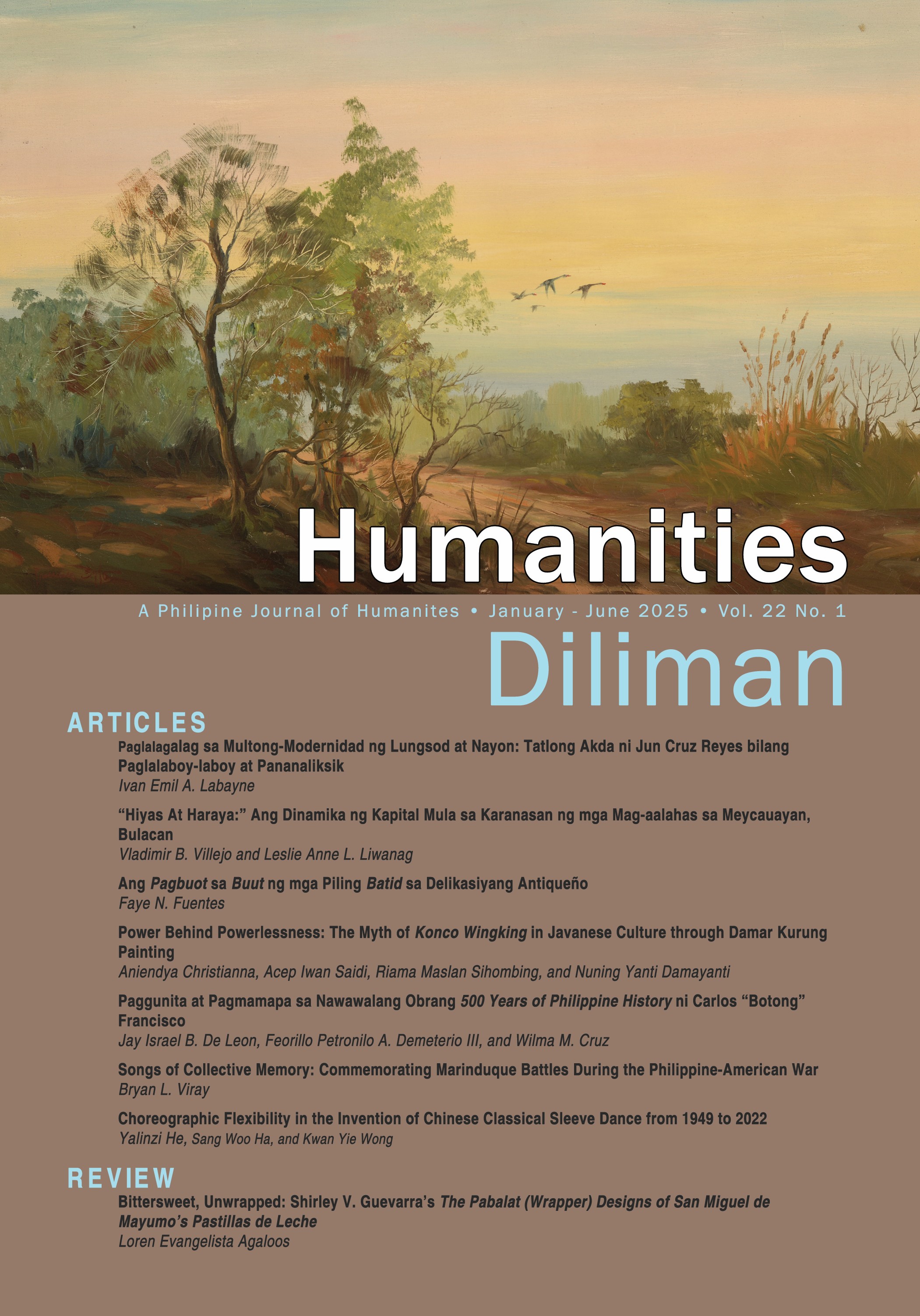Power Behind Powerlessness: The Myth of Konco Wingking in Javanese Culture through Damar Kurung Painting
Abstract
The concept of konco wingking in Javanese culture, meaning ‘friend behind’, is associated with the traditional role of Javanese women as wives and mothers based on the ideology of patriarchy and feudalism. This myth is believed to reinforce the subordinate status of Javanese women. By analysing Damar Kurung and using visual ethnography, this study examines the impact of the konco wingking myth on gender relations in Javanese society. This traditional artwork has existed since the 16th century on the northern coast of East Java, Indonesia, and was passed down through an old female painter named Masmundari. She interpreted the myths circulating in Javanese society through artistic practices. This study collected visual data from museums and galleries, and verbal data from interviews and observations. By combining verbal and visual data using Lévi-Strauss’s structuralist theory of mythology and Foucault’s concept of power, this study shows how Javanese women, despite their primarily domestic roles, play important roles in the family, society, and state. These women adopt distinct approaches to achieving empowerment and equality with men, utilizing their feminine characteristics, calmness, and resilience in adversity.


